For Bangla, women too were at the forefront
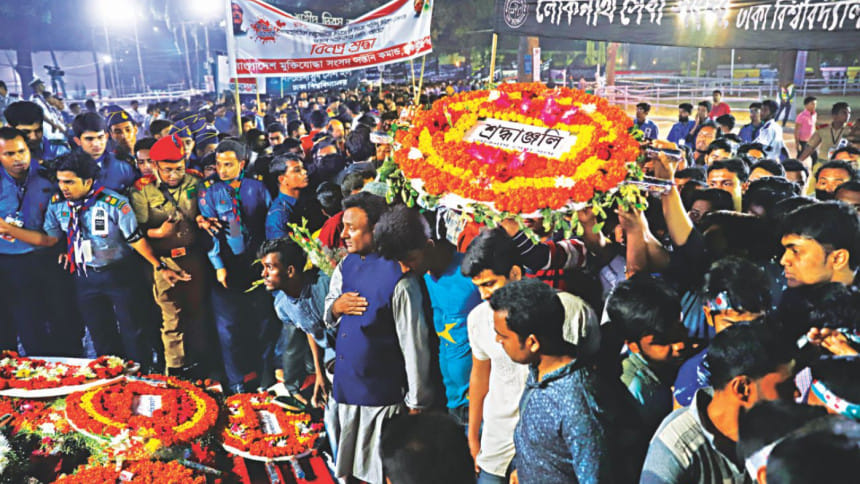
It was a testing time, the 1950s.
When Rowshon Ara Bachchu was studying at Dhaka University, female students could not even talk to their male counterparts without the proctor's permission. Violation of this rule would mean a fine of Tk 10 or even their expulsion from the hostel. Taking part in gatherings or meetings was out of question.
But because the time demanded, Rowshon risked it all.
True that Salam, Barkat, Rafique, Jabbar and Shafiur are the inseparable names when it comes to remembering the Language Movement.
But there were women too, fighting shoulder to shoulder with their male counterparts for the right to speak in Bangla.
In fact, women were the first to hit the streets defying the curfew and gather under the historic Amtala on the Dhaka University campus on February 21, 1952.
Rowshon Ara's group was among the first to break the police barricade and to keep marching towards the assembly at Jagannath Hall at DU.
"Rashtra bhasha Bangla chai; cholo cholo assembly cholo [we demand Bangla be the state language; let's march towards the assembly]," they thundered.
Sixty-six years later, Rowshon, now 86, still remembers the day.
The decision to defy the curfew came at a meeting of the Dhaka University Sangram Parishad on the midnight of February 20.
Students came out of their halls and started gathering on the campus since morning. As the day wore on, the crowd increased, she told The Daily Star in her Mirpur house on Monday.
Protestors started gathering at Amtala around 12:00noon.
Earlier in the morning, Rowshon went out of her hall to assemble female students from different schools and colleges in Dhaka.
"When we returned, we saw a human sea; we could see only heads,” she recalled.
There was an intense debate over whether to break section 144. Tension was palpable.
The Dhaka University authorities, including its proctor Moazzem Hossain, rushed to the spot and requested the students not to go for any movement. But the students turned it down.
After the teachers left, Gaziul Haq, a key organiser of the protest, delivered a fiery speech, she said.
Then Abdul Matin, convener of the Sangram Parishad, took charge.
"Are we afraid of breaking section 144?” he asked.
A resounding "no" was the answer, but no one yet knew how to do that.
"We decided to bring out processions in groups, 10 students in each group. To avoid arrest, one female student of the university would be at the front.
"Safia Khatun, Halima Khatun and I were at the front [of three groups]," she said.
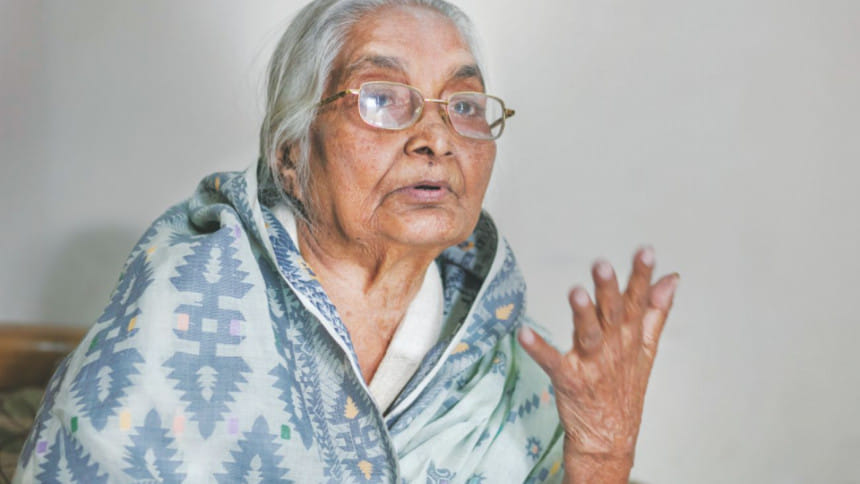
Armed police were deployed at the other end of the university gate. Another group of police put up a barricade with sticks just about 10 feet apart, she added.
The first few groups went past the barricades from beneath the sticks. Some of them were picked up by police.
"But I was determined to break the barricade and not just go past it.”
She did as she thought, pushing the police holding the sticks. Others followed suit, soon breaking through the barricade.
Within moments, police started firing teargas shells and beating up the students.
"I never saw tear shells in my life before that," said Rowshon, who was herself slightly injured in the police beating.
Amid the beating and firing, the slogans continued: "Rashtra bhasha Bangla chai; cholo cholo assembly cholo".
The battle between the students and the police spilled out on to the streets.
As they were marching towards the assembly, shootings began sometime around 3:00pm, killing Salam, Barkat, Rafique, Jabbar, Shafiur and others.
Rowshon run and took shelter behind a heap of rickshaw scraps opposite the Dhaka Medical College.
"Gunshots were still ringing.”
Feeling unsafe, she entered the residence of the provost of Salimullah Hall. There she met fellow female combatants; everyone was panicking.
"I did not dare to return to my hall. Then we found Prof Munier Chowdhury. He took us to the hall," she said.
To Rowshon, the Language Movement was a huge step towards women's emancipation.
But she lamented the fact that there is little or no mention of their contribution to the Movement in history books.
"It is matter of regret that you will not find our names anywhere.”
Born in Kulaura of Sylhet, Rowshon started her primary education in her home town. After she completed class three, her parents sent her to Shillong in India where she studied up to class eight.
It was when her political schooling began.
At the time, she was inspired by the speeches of Mahatma Gandhi and Sarat Chandra Bose. “I was also amazed to see the defiant patriotism of Subhas Bose.”
But she soon returned home, and completed her matriculation in 1947 and intermediate in 1949.
The same year, she got admitted to Dhaka University to study philosophy. There, she quickly involved herself in several movements.
Just a year ago, Mohammad Ali Jinnah, the governor general of Pakistan, had told the convocation at Dhaka University, "Urdu and only Urdu shall be the state language of Pakistan".
The subsequent students' protests led to the formation of Dhaka University Sangram Parishad in 1951.
"Ever since, we had been preparing for waging a movement demanding recognition of Bangla as our state language," said Rowshon, who was a member of the Parishad.
On January 27, 1952, the then Prime Minister of Pakistan Khwaja Nazimuddin only added fuel to the fire when he told a public meeting: "Urdu will be the state language of Pakistan".
Furious, DU students in a meeting decided to stage a protest on February 4.
"At the time, some female students joined the meeting secretly but very carefully. Sufia Khan, Sufia Ali, Baby Apa, Rokeya Apa and some others attended the meetings," said Rowshon, a mother of four daughters.
The female students were tasked with writing posters and assembling girl students from different schools and colleges.
"It was such a time when joining a movement ignoring familial and social barriers was very risky. But the female students defied those norms to join the movement. But how many people do know their names?” she asked.

 For all latest news, follow The Daily Star's Google News channel.
For all latest news, follow The Daily Star's Google News channel. 

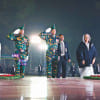
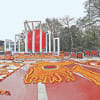

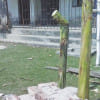
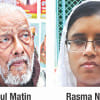


Comments